SPECIAL REPORT | How to reinvent Chester Northgate
Criticism of Chester’s £300m Northgate project has recently come to a head, with local businesses rallying behind a letter to its developer, Cheshire West & Chester Council, calling for an immediate halt on the scheme. But is there an alternative, and can the city reinvent itself as a modern leisure destination?
Walking down Chester’s Foregate Street as the city’s retail core begins, it soon becomes clear that all is not well.
At the top end of the street before it joins Eastgate and merges with the city’s famous rows, there are a host of empty units, with Primark now the most prominent store as you enter the retail core. A BHS is still vacant – at around 60,000 sq ft, it isn’t small – while a number of other shops feature prominent ‘to let’ signs. Other shops including a Poundworld are also set to close at the top of the street, leaving more space vacant.
Estimates suggest there is around 200,000 sq ft of vacant retail space in the city’s core – which begs the question, why does Cheshire West & Chester need to spend public money on building 45 more shops?
The project in question is Chester Northgate, a £300m, council-developed, retail-led mixed-use scheme focussed on a plot bordered by Northgate Street, Hunter Street, St Martin’s Way, and Hamilton Place.
A development on the site has been mooted for more than 10 years, and its latest iteration was first put out to public consultation in November 2015.
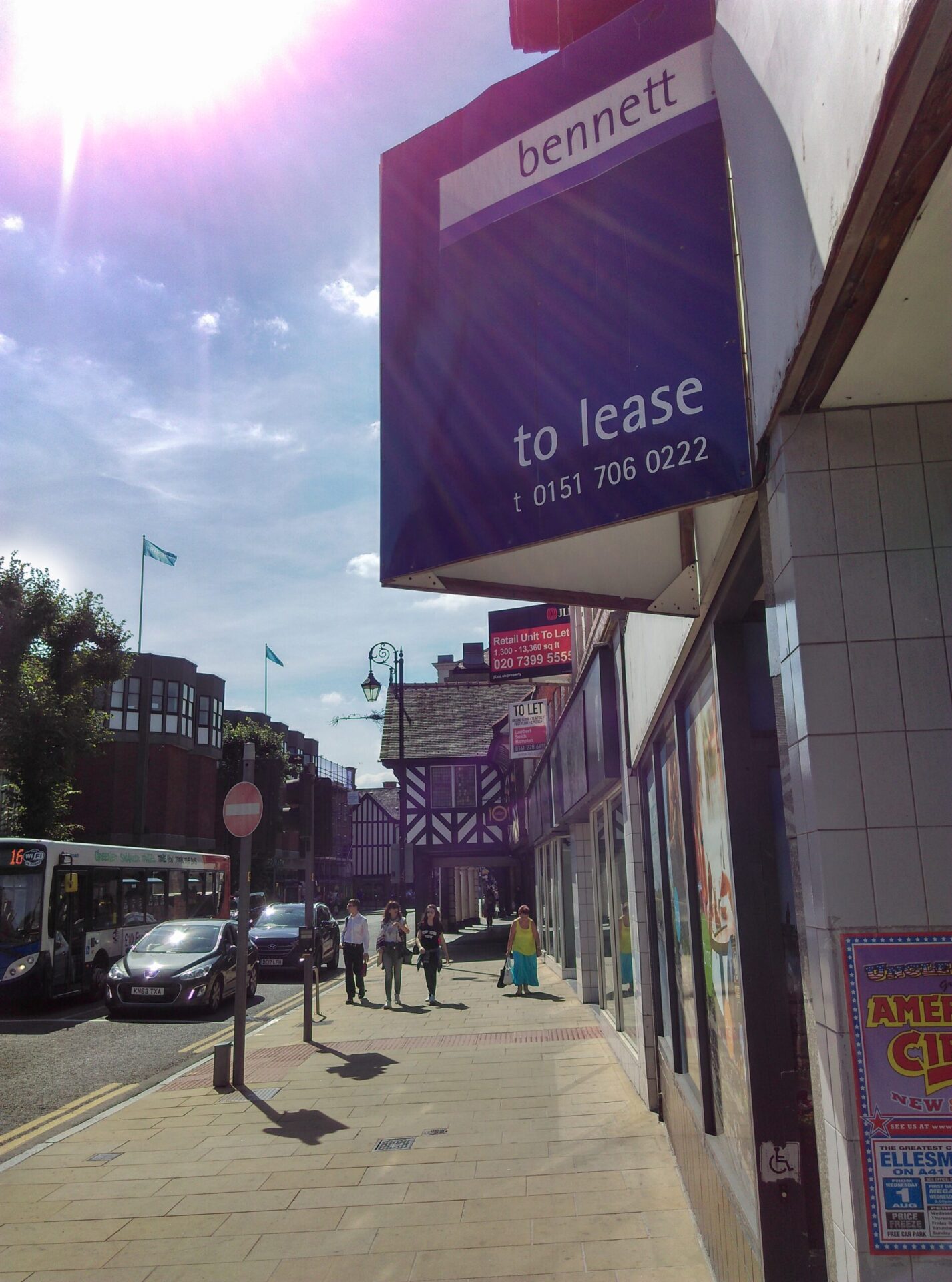
Empty shops on Foregate Street
As well as 45 shops and a 100,000 sq ft House of Fraser department store, the Northgate development is set to feature 12 restaurants, a six-screen Picturehouse cinema, a new Crown Plaza hotel, 120 apartments, a market, and 25,000 sq ft of offices. Restaurant tenants signed up so far are Tapas Revolution and Cosy Club.
It is set to be delivered in two phases, with the market and cinema being delivered first, followed by the hotel, retail, apartments, and offices in a second phase.
Although this latest iteration has been in the public realm for some time, spades have yet to hit the ground, and it has been hit by a series of blows including House of Fraser’s decision to pull out in June this year following its CVA.
The retail element of the scheme is the part that has come in for the most criticism and this reached a head in May this year when a letter calling for an “immediate halt” on the scheme, championed by retail consultant Tim Kenney of Kenneymoore and property developer Guy Butler of Glenbrook, attracted more than 120 signatures from professionals across the built environment, retail, academia, and hospitality.
In the letter, the parties argued the project was “unviable and undeliverable” in its current form and questioned “the skillsets of the council to deliver this scheme”.
The council has previously come under heavy criticism for its decision to develop Barons Quay in Northwich using more than £70m of public money. The retail-led scheme is still less than 60% full more than two years after opening.
Cheshire West & Chester Council, however, has stuck to its guns on Northgate, and in its response argued that increasing the city’s retail offering was still in its interests, stating: “We believe this because it is what retailers and our advisors tell us”.
Place North West paid a visit to Chester with Kenney, who outlined the council’s proposals, and set out in detail what the project’s objectors would like to see come forward in its place.
Pointing out the approach to the Northgate site, Kenney highlighted the series of vacant shops, with more expected to come to the market as tenants move away from traditional retail offerings.
“It’s becoming increasing difficult to let vacant space with the spectre of Northgate hanging over the town – we have no idea how long the process is going to take, so how can businesses commit properly?” he said.
“You can’t look at the site in isolation as the council are doing, there are creeping vacancy rates and promising retailers they won’t be relocating to Northgate when it opens isn’t exactly an incentive. It’s like there’s no clear strategy in place.”
The Northgate site starts by the town hall, with the council’s land ownership starting soon after. One of the key plots that has already been developed is the Storyhouse cinema, theatre, and library, and is thriving at the time of Place North West’s visit. However, turning down Hunter Street presents something of a different picture.
The former bus station on the site remains fenced off and is set to be host to Northgate’s market, but as yet, little work has taken place as the council is still looking to attract a funding partner for the scheme. It also borders the possible site of the new Crowne Plaza, but the whole area is quiet and is a marked contrast to Northgate Street only a stone’s throw away.
The existing Crowne Plaza is yards away from the proposed relocation site, currently an under-utilised green space. Its proximity to the city’s ring road makes it a prime candidate for a multi-storey car park, especially as it sits near where Northgate’s planned cinema and market offering will be. On top of that, the Storyhouse theatre and cinema proximity means that together, the site could be a focal hub for some of Chester’s night-time economy.
The approach of developing a car park ahead of time to bring more people into a town or city centre isn’t an unusual one – an example both local and recent is Time Square in Warrington, where a Leach Rhodes Walker-designed multi-storey car park has been delivered as part of a first phase, with a permanent market, cinema, restaurants, and leisure offering all to follow afterwards.
The Northgate objectors’ letter argues the market, cinema, and leisure should all be delivered “as soon as possible”, ahead of any retail or a relocation of the hotel, in particular to boost the night-time economy.
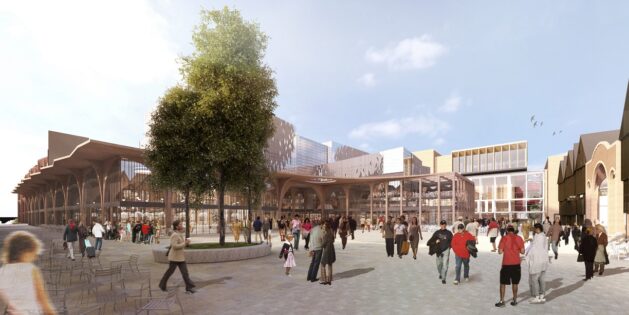
A CGI of the new market
“Northgate should be unique; Altrincham Market is brilliant for Altrincham, we want Chester to have the best market in the UK that harvests ideas from around the world. We need to get on and deliver that first,” said Kenney.
“It should be small, quality, and entrepreneurial; it doesn’t need to be copying Liverpool or Manchester. It’s essentially a blank canvas to do something different so why are we trying to imitate somewhere else?”
And the leisure offering shouldn’t stop there, he added: “We should take it back to first principles: the zoo is one of our best assets, so why not have something based in the city linked to that?”
The leisure-led offering is a view supported by Richard Grove, general manager of the Chester Grosvenor. Having signed Kenney and Butler’s letter, he has argued local business aren’t being listened to when it comes to what the city needs to improve its core.
“When certain people in the council are still citing Barons Quay as a success it worries us as a business,” he said.
“All we want is certainty going forward, but it doesn’t seem like the council is listening to us – there’s a fundamental concern that changes to the town aren’t being thought through.”
A night-time economy is key to this, he says, with many of the guests only staying for one night at a time simply due to a lack of options for evening entertainment both in the week and at weekends. Certain times of the year – Christmas, and around Chester race events – are much busier but he argues the city has much more potential as a tourist destination.
“People are only staying a short time on average simply because there isn’t enough reason to keep them here,” he said. “People do come for race weekends, or perhaps visit the zoo during the day, but in the evening there isn’t enough to do.
“By adding that night time economy, you extend the stay, and by extending that stay, you extend their local spend.”
Spend, however, has been one of the key criticisms singled out by Northgate’s objectors.
According to freedom of information requests seen by Place North West, the council has racked up significant borrowing and spent multi-million-pound fees on the project so far.
These include borrowing of £22m as of last year to fund the acquisition of land and assets on the Northgate development area. Nearly 18 months ago, the council had already spent £5.4m on development expenditure to bring the project forward to a planning determination.
At the same time, it estimated it would spend £16.2m on the current stage of the development: this includes the progression of site assembly, its leasing strategy, and implementation of a funding strategy. This funding was to be committed incrementally, based on progress against agreed project milestones and risks.

House of Fraser was originally signed up as anchor to the department store, pictured above
Since then, the council has continued to spend on professional fees: further freedom of information requests have also revealed the council has paid nearly £1m to its consultant team in less than 12 months, including six figure sums to its quantity surveyor, project manager, and land assembly agents.
Development manager Rivington Land is the biggest beneficiary having been paid £1.6m over four years; sources suggest the company could be paid up to £5m of public money for its role in the scheme if it comes to fruition.
The procurement process for a contractor is already under way, with Laing O’Rourke and Vinci both on the shortlist. Kier, which delivered the nearby Storyhouse, was also interested in the scheme, but according to sources close to the project wanted to work on Northgate alongside architect Brock Carmichael, rather than the council’s appointed architect ACME.
It’s this spend of public money that particularly galls some of the project’s objectors, particularly former Mace and Mott MacDonald project manager Jonathan Bellis, who now runs his own consultancy.
“The concern is that public money is being wasted; wasted on costs, design, and consultants’ fees,” he said. “That’s no reflection on the services those consultants have provided, it’s a reflection that they’ve been given the wrong brief.”
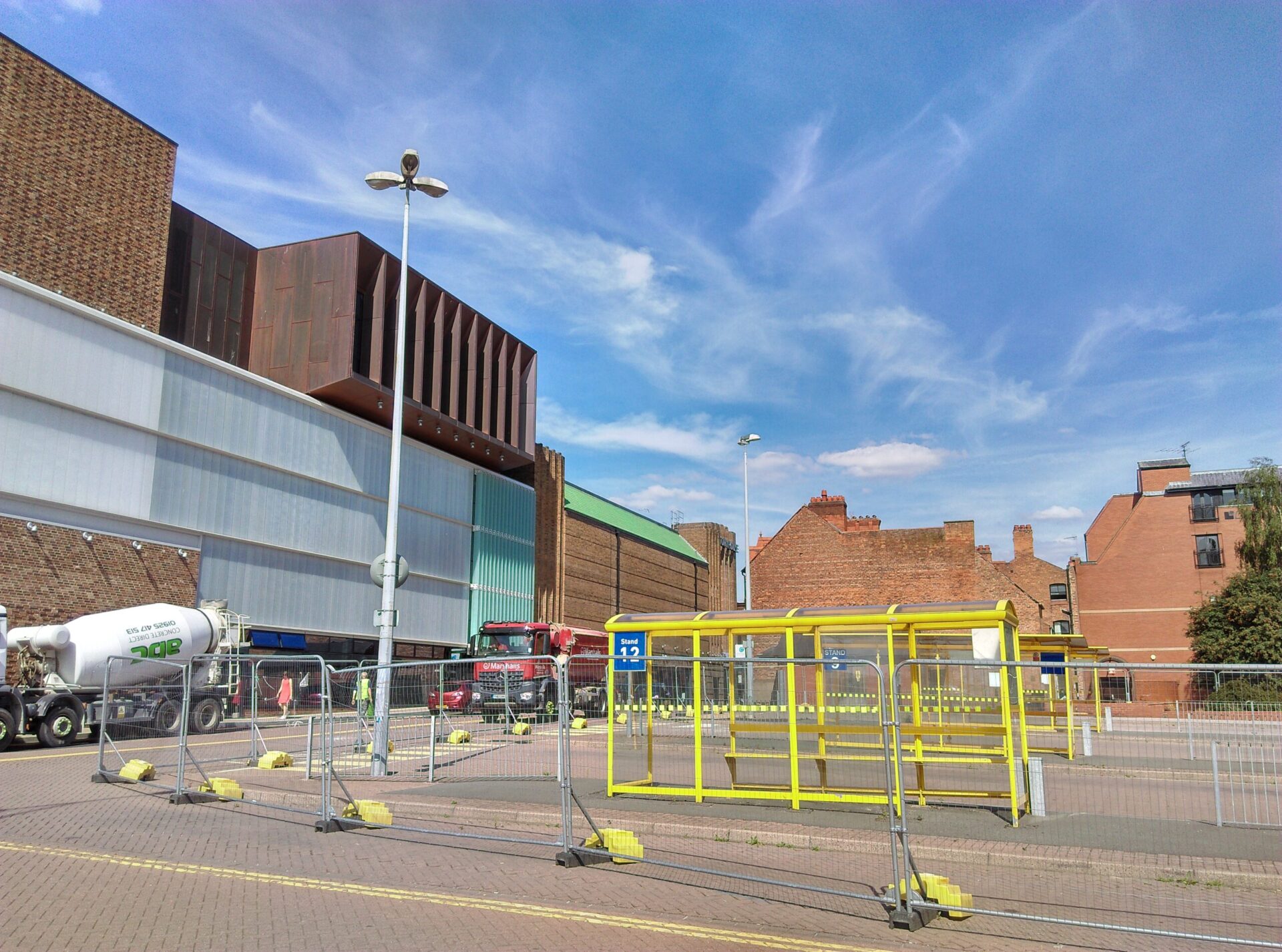
Northgate’s cinema and market will be built opposite the Storyhouse
The hotel element of the scheme is particularly singled out for criticism by Bellis.
“It’s completely wrong for the taxpayers to fund the relocation,” he argued. “It’s going to cost you £30m at least to get it done. It’s been an unaccountable process – do we know there’s been an analysis of the risks, issues, and if there’s a contingency plan?
“Going through with the hotel relocation is essentially burning money; why not overhaul the entrance and give it a full refurbishment?”
“Any private business has to admit it’s made a mistake, so the public sector should follow suit. If you do nothing on this site, the cost model for the Storyhouse will fall off a cliff.”
The hotel site, the objectors argue, should be developed as a multi-storey car park as part of the development’s first phase, which also includes the market and the cinema.
But after this point, what happens next? Dialogue, said the objectors, was always the primary objective.
“The council might seem to give the impression they’re running scared but we want to have a conversation with them; there’s a group of people in the council who aren’t engaged with local business that need to be,” said Bellis.
“We didn’t need to get to the point that we’re at; we only want reassurances that they’ll consult on it properly. It shouldn’t become a question of who’s going to back down first.”
Cheshire West & Chester now has a new chief executive in place, replacing the retiring Gerald Meehan with Andrew Lewis, managing director for the Tees Valley Combined Authority, and now the council appears to be listening.
Lewis started his role in late July and has already met with Kenney and Butler to discuss the scheme, an approach praised by the project’s objectors. The meeting, brokered by Peter Carstensen, chair of the Chester Growth Partnership, was held on Monday 30 July, and both the council and the Growth Partnership have now agreed to establish a working group made up of public and private representatives which would report “publically and openly” on the project’s progress.
The Growth Partnership, which counts Muse’s Phil Mayall and Marketing Cheshire’s chief executive Katrina Michel on its board, said going forward “a substantial and meaningful engagement between senior members of the private and public sectors will be essential for the successful delivery of the Northgate Development.”
At the meeting, the council agreed Northgate would need “to reflect recent fundamental changes in the business environment for retail, and increase the relative importance within the site for good quality housing, leisure and cultural attractions, and high quality public realm” – echoing the calls made by Kenney and Butler in their letter.
Following the establishment of the working group, the next major milestone is the outcome of an inquiry into the Compulsory Purchase Orders to be used to assemble the final parcels of land needed for the project.
An inquiry took place earlier this year, and the outcome is said to be imminent, although some local businesses are expecting it to be thrown out by the independent Government inspector, Neil Pope.
The council has already assembled 85% of the land that it needs to deliver the project. If the CPO plan does get thrown out, it leaves many question marks over the project, but again the council has shown signs it is willing to look at different options for the second phase: recent minutes state the housing phase was “under review” to see if more homes could be included.
Whatever happens next, Kenney argued the scheme could be used to “make Chester its own great city”; whether this is made a reality is another matter. Either way, with work unlikely to get under way this year, there is still time for the council to rethink its view – or to push on regardless of the criticism.


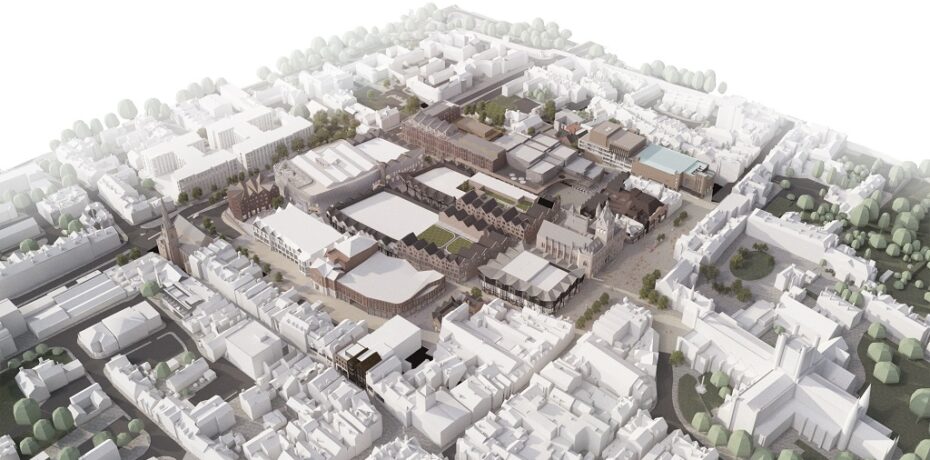
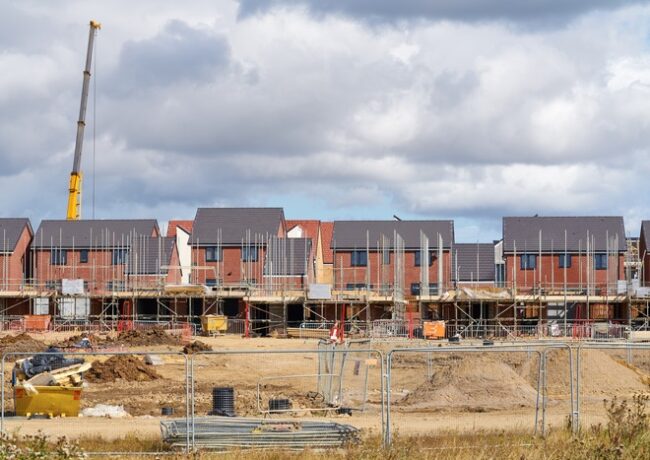
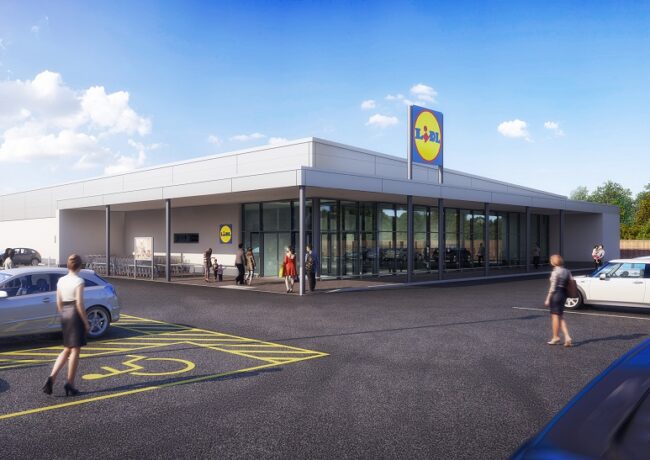
“A development on the site has been mooted for more than 10 years” The concept of a retail led scheme has been mooted (designed several times ££) for well over 20 years, a concept designed pre internet!! What’s happened is quite simple, its called internet shopping (add to that Cheshire Oaks and Liverpool 1 providing a more modern offer and now taken market share). It cant be more obvious. Revisit the business case as they say!
Its not rocket science, build a resi and ideally a commercial quarter which will help drive footfall and spend and help fill the supposed 200,000 sqft vacant space. Shame the Muse business Qtr out on a limb at the Station wasn’t parked on Northgate.
By Roger Melly
So we would get rid of the underground Market car park to replace it with an overground multi-storey car park on a gateway site on one of the busiest roads through Chester?
By Planman
The auditors say:
The two major regeneration developments at Barons Quay and Northgate are progressing broadly in line with its plans although the volatility in the retail lettings market has had an impact on the timing of these projects
By andreos
The City’s attractive face is not this modern, clone type development, but its historic buildings. The Local Traders campaigned for a new theatre in Northgate Street to complement the process that had already begun of creating an individual nighttime economy of bars, venues and restaurants to fill the Historic buildings in the area, and individual distinctive traders for the day trade. It is not a surprise that large scale developers such as Rivington land and agents like Kenny Moore, who can make no money out of these small distinctive elements, should champion a clone town of National restaurant chains alongside the Theatre and Cinema, just like every other out of town cinema complex. The addition of the Market, reformed belatedly to also go with the new times by dramatically increasing the artisan food stalls, will add character. But the mass development, paid for by the rates of small shopkeepers and others, competes unfairly with those very individual, small, shops that are occupying the Historic buildings around it, because the Council is spending millions on pedestrianising the new development area, but, taking advice from vested interests like Rivington Land, is using the streets of small shops to dump the servicing traffic and coaches onto, rather than equally upgrading the most important asset that they have – the Historic streets and traders in them. When the new development opens, it will not be long before the Historic Northgate area fails, shops go bankrupt and the streets are again full of unlettable, historic, unalterable buildings which will suffer pressure to be demolished. In other words, we are about to go full circle to the dereliction that lasted forty years after the last round of “Modernisation for Growth” by building chain occupied identikit shopping centres destroyed the Old City centre in the sixties. And the solution is simple, and widely done in every other tourist City in the World: Pedestrianise the historic streets to AT LEAST the same standard as the new development, and let the areas work together as one district with free-flowing footfall, instead of leaving the small shops on narrow pavements in streets full of lorries and full of fumes.
By Rod Cox